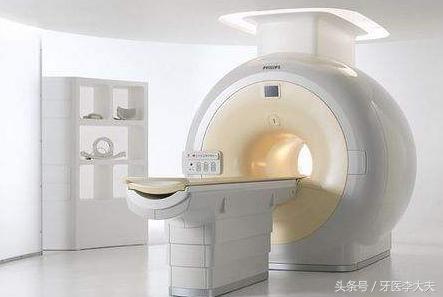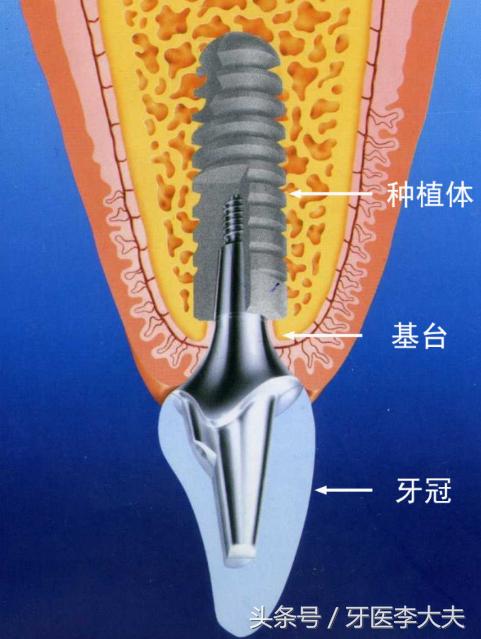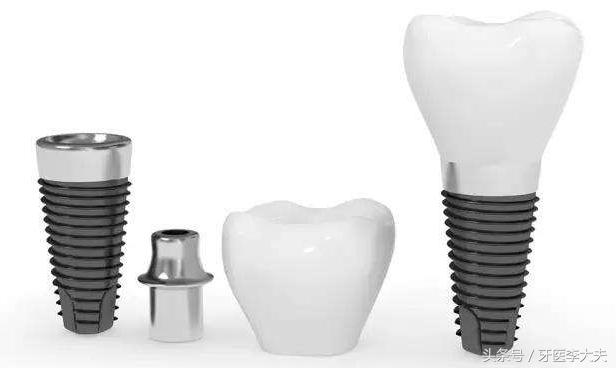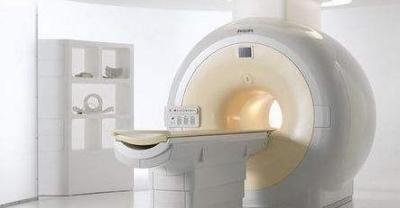Dental implants-MRI, no conflict!
With the maturity and promotion of dental implant technology, more and more people begin to accept this technology and benefit from it. But there are also many patients who are worried about its benefits, especially older people, who are more worried about the impact on MRI after dental implants.

Today, let's talk about it!
Now interventional medical devices pay great attention to nuclear magnetic resonance compatibility, that is to say, people are more concerned about dental implants, patients with dental implants can do nuclear magnetic resonance examination.
Why can't there be metal objects on the body during the MRI?
Nuclear magnetic resonance (NMR) usually refers to the technology that uses NMR phenomena to obtain information about molecular structure and the internal structure of the human body. The reasons why there can be no metal objects during inspection are as follows:
1. Metal objects are not part of the body, which will have a great impact on the penetration of electromagnetic waves through the human body, interfere with the uniformity of magnetic field and the stability of radio frequency, cause artifacts and affect judgment. Therefore, you can't bring metal objects with you when you scan an MRI!
two。 There is a very strong magnetic field in the nuclear magnetic resonance machine and the nuclear magnetic resonance examination room. Generally, outside the nuclear magnetic resonance examination room of the hospital, there are eye-catching red or yellow signs indicating that nuclear magnetic resonance examination is absolutely prohibited. For example, patients with pacemakers, metal clips or metal stents left after vascular surgery, or other coronary artery, esophageal, prostate, and biliary tract who undergo metal stent surgery are absolutely prohibited from having an MRI examination. Otherwise, the movement of the metal attracted by a strong magnetic field may have serious consequences.
3. When there are other metal foreign bodies in the body that cannot be removed but must be examined, they should be closely observed to prevent the metal from moving in a strong magnetic field and damaging adjacent large blood vessels and important tissues. Those who have metal contraceptive rings and movable metal dentures must take them out before they are examined.
You can also have an MRI examination after having an implant tooth.
Only by recognizing the implant teeth can we dispel the fear. Let's first take a look at the basic composition of dental implants:

In fact, the implant is an artificial root (implant), which does not grow outward, but grows with the jaws. After the artificial tooth root is firmly combined with the jaw, screw a pile (abutment) to extend the artificial tooth root beyond the jaw into the mouth. Finally, a crown is placed on the post to restore the missing teeth. This is the legendary implant tooth (shown in the picture)
1. Implant
At present, in thousands of dental implant brands around the world, the materials used for implants are titanium, but the manufacturing process is somewhat different. Titanium is the metal with the best biocompatibility known at present, and it is a non-magnetic metal, and it will not be magnetized in a large magnetic field, so the implant itself does not have any effect on magnetic resonance examination, and there is no security risk. Patients who are worried that the implant will affect the MRI can rest assured.
two。 Base station
The supporting abutments provided by dental implants are generally made of pure titanium or all-ceramic materials (zirconia). No matter what kind of material it is, it will not affect the nuclear magnetic resonance examination.
3. Dental crown
The materials for making crowns are generally divided into two categories, all-ceramic teeth and metal porcelain teeth. All-ceramic teeth do not contain metal components and will not affect NMR at all. On the other hand, metal porcelain teeth do interfere with nuclear magnetic resonance imaging, which varies with different materials.
The porcelain metals commonly used in oral restoration are gold alloy, Ni-Cr alloy, Co-Cr alloy and so on. A large number of experimental data show that gold alloy precious metals only slightly interfere with the artifacts in magnetic resonance examination, while non-precious metals such as Ni-Cr alloy and Co-Cr alloy will produce large artifacts, which have a certain impact on magnetic resonance examination.

Is there a non-precious metal fixed restoration in the mouth that must be removed before magnetic resonance examination? Actually, not necessarily.
It is important to remind you that even if you install non-precious metal porcelain teeth, MRI will only interfere with the imaging around the restoration. If the part we want to examine is not in the head, it will not affect the diagnosis of the disease, and there is no need to remove the restoration.
To sum up, patients who have had dental implants can have an MRI. If you are still struggling with whether or not to have an implant because of this problem, I hope the above analysis can help you. As a dentist, I sincerely hope that dental implant technology can benefit more patients with missing teeth.
- Prev

Three tricks to teach you how to fix the implant.
Dental implant is to implant a special artificial root on the bone of the missing tooth and restore a denture with the same function as the natural tooth.
- Next

Implant teeth-porcelain teeth, silly can not tell?
For people who can't tell the difference between implant teeth and porcelain teeth, the subsequent teeth will suffer more. First of all, let's start with their concepts.
Related
- Fuxing push coffee new agricultural production and marketing class: lack of small-scale processing plants
- Jujube rice field leisure farm deep ploughing Yilan for five years to create a space for organic food and play
- Nongyu Farm-A trial of organic papaya for brave women with advanced technology
- Four points for attention in the prevention and control of diseases and insect pests of edible fungi
- How to add nutrient solution to Edible Fungi
- Is there any good way to control edible fungus mites?
- Open Inoculation Technology of Edible Fungi
- Is there any clever way to use fertilizer for edible fungus in winter?
- What agents are used to kill the pathogens of edible fungi in the mushroom shed?
- Rapid drying of Edible Fungi

